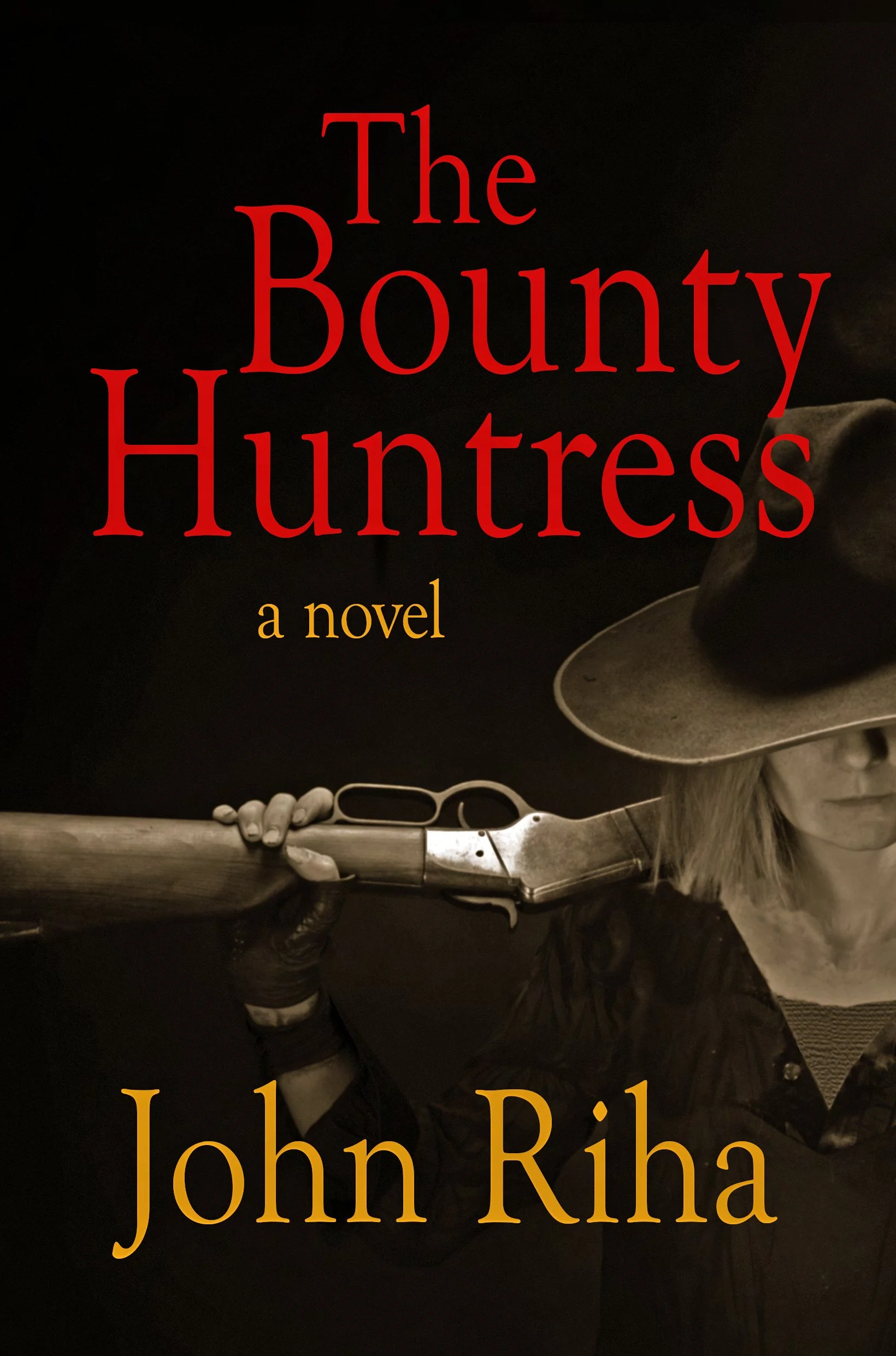Heather’s Bookshelf: Author Interview with John Riha
Book Title: The Bounty Huntress
Released: 07/14/17
Genre: Historical Fiction
Interview by Heather L. Barksdale
What inspired you to write “The Bounty Huntress”?
Riha: There’s a regular feature in one of our local papers titled, “One-Hundred Years Ago.” Each column detailed a significant local event that had happened a century ago. One of these articles was about a backwoods poacher who murdered the area’s first game warden in 1914. The killer went free after a sham trial. The warden left behind a wife and two young children, and I began to imagine those children growing up with vengeance in their hearts. As the idea evolved, the characters began to emerge. The primary character is the warden’s daughter—a bold teenage girl who must assume responsibility for her autistic brother and overwhelmed mother. I was also attracted to the period—rural Oregon just after the turn of the century isn’t an era that’s been explored much in literature. While much of the country was forging ahead with roads, electricity, and industrialization, many parts of Oregon still lived by the unspoken rules of the Old West—a setting rife with injustices and misogyny.
How did you come up with the names of your main characters?
Riha: For any character, I’m constantly assigning and changing names while I write. As scenes and plot develop, I’ll get a sense if a name fits what that character is becoming. It’s strictly based on feelings, and I’m not always satisfied. I’ll often change names mid-stream (thank God for global search-and-replace!) The main character in “The Bounty Huntress”—Iris Greenlee—is spot on for me. “Greenlee” feels solid and not pretentious. I think the name “Iris” is era-appropriate and forthright, yet it hints at an essential tenderness. Being satisfied with a main character’s name is so helpful in forging an emotional affection that makes writing about her or him a joy. (And that goes for despicable anti-heroes that we love, too.) It wasn’t until the book was well-developed that I thought about “Iris” being the physical center of our eyes, maybe inferring the character is clear-eyed about injustices? That fit my idea of her, so I’ll claim I made that association from the get-go.
Is there anything that you want readers to know about you, your writing process or your book?
Riha: My main characters tend to be women. Historically (and still today) woman have been handicapped by society. They have odds stacked against them on so many levels, and overcoming obstacles yields characters that readers genuinely care about. There’s a back story here, too. Growing up, our family spent summers at the lake house my grandfather built. Most days, while the fathers were off working, I was with my mother, sister, my two girl cousins, and three aunts. My mom was a teetotaler but the aunts were raspy-voiced, beer-drinking, cigarette-smoking ladies and I loved them for being raw and honest. My cousin Lynne was my best friend and as kids we did everything together—climbed trees, fished, rowed boats far out onto the lake. I always thought of her as brassy, daring and brave, and in many ways she is the muse for my main characters. Also, I obsess about research and making sure details are technically and historically accurate. It’s something I really enjoy doing.
If "The Bounty Huntress" was adapted into a movie, who would you like to see cast to play your lead characters?
Riha: The quick answer is Jennifer Lawrence. Would she be believable as a 15-year-old? Hard to say! Maybe Julia Garner from “Ozark.” As Iris’ mother: Kate Winslet.
When you encounter writer’s block, what do you do to break yourself out of it?
Riha: I read or garden. My mantra is, “When you can’t write, read.” Just keep associating with words and hopefully getting lost in a story. When I’m gardening, I’m usually imagining plots and dialogue. Some of it actually makes sense.
Are there any tips that you would like to share with other aspiring authors?
Riha: Wow, I’d be the last person whose undisciplined writing habits are worthy of emulating. One thing I’d suggest is to try and carry a small notebook and when something strikes, jot it down. Don’t have to get too obsessed with it, but there’s a lot going on in our lives, and sometimes a good flash—a turn of phrase or plot twist—evaporates and we can’t quite get it back in its original just-so perfection.
What is your favorite genre, book, and/or author?
Riha: I like stylists—writers who play with language and sentence construction, who make you stop and reread a sentence or paragraph and when you do, you nod and smile. George Saunders, Annie Proulx as examples. I’ll add Cormac McCarthy despite his recent book, “The Passenger” (sorry CM!) Loved Anthony Doerr’s “All the Light We Cannot See.” I’m a sucker for stories with heart—”News of the World” by Paulette Jiles; “Bewilderment” by Richard Powers.
What are you working on next?
Riha: A few years ago my son and I backpacked in wilderness areas in northern California and a little paranoid imp sat on my shoulder and kept whispering, If the forest erupts with wildfire, how do all the hikers get out? That became the basis for an adventure/thriller that I’m currently finishing. The working title is, “Incident 395.”
Learn More About the Author and The Bounty Huntress:
Goodreads link: https://www.goodreads.com/book/show/36218514-the-bounty-huntress
Interested in checking out the book for yourself?
Find it for purchase here
Interested in submitting your book for review? Visit my review page for guidelines and submission requirements.
review


